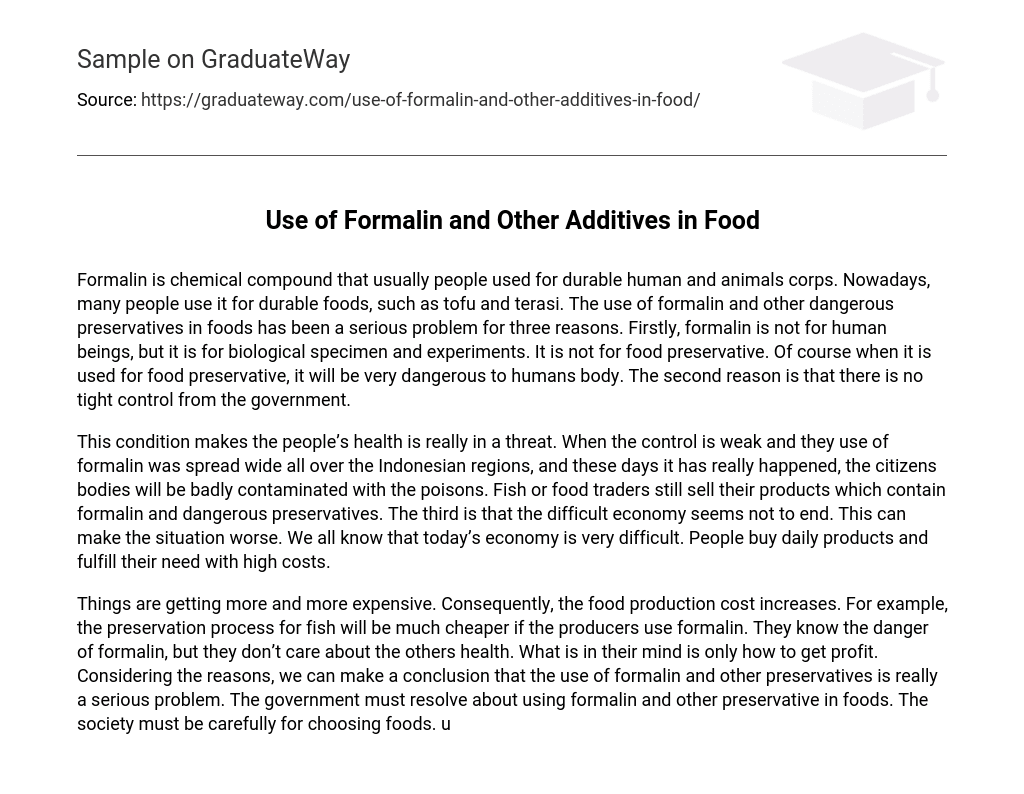The use of formalin, a chemical compound typically utilized for preserving human and animal remains, is now being employed to prolong the shelf life of food items such as tofu and terasi. This practice has sparked concerns due to three primary reasons. Firstly, formalin is designed for biological specimens and experiments, not for human consumption, thereby posing significant health hazards when used as a food preservative. Secondly, the lack of strict government regulations further compounds this problem.
The people’s health is in great danger due to the weak control and widespread use of formalin in various regions of Indonesia. As a result, citizens’ bodies are being heavily contaminated by poisonous substances. Fish and food traders continue to sell products containing formalin and other hazardous preservatives. Adding to this issue is the ongoing difficult economy, which only exacerbates the situation further. It is widely known that the current economy is challenging, making daily products expensive and increasing the cost of fulfilling basic needs.
As prices continue to rise, the cost of food production also increases. In order to cut costs, some producers choose to use formalin in the preservation process for fish. Despite being aware of the dangers of formalin, these producers prioritize profit over public health. This highlights the serious problem of using formalin and other preservatives. To address this issue, the government must take action and regulate the use of formalin and other preservatives in foods. Additionally, it is important for consumers to be cautious when selecting their food options.





